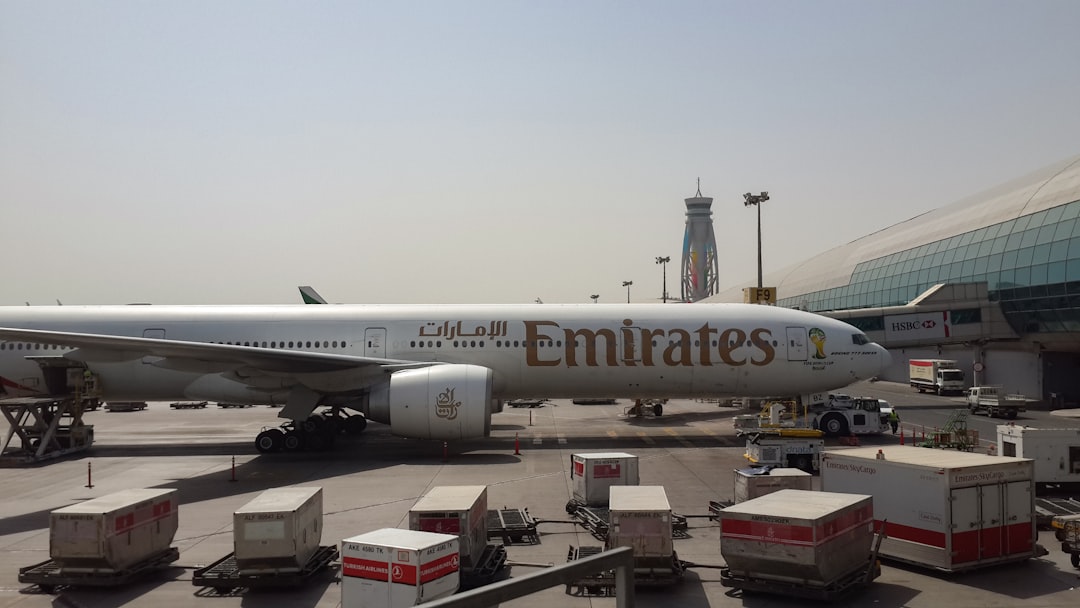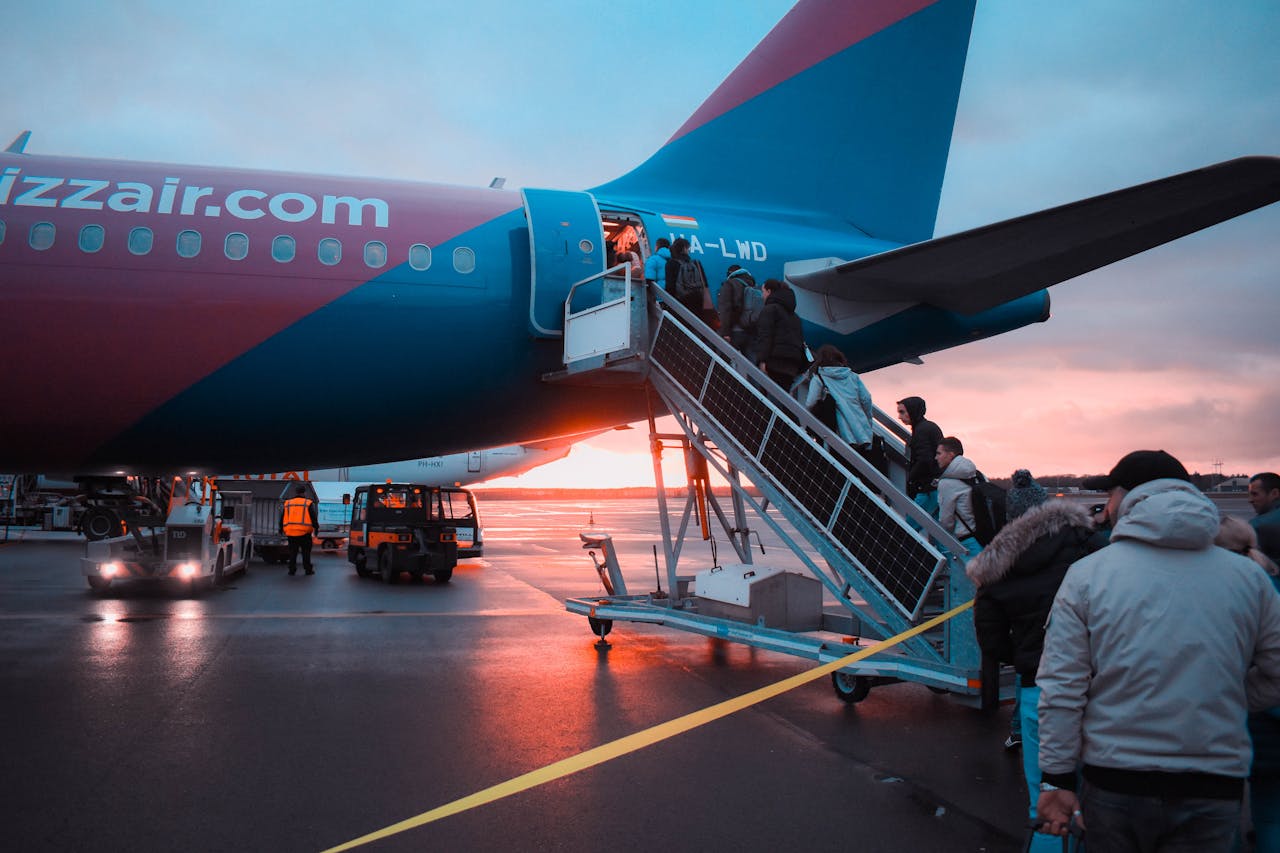Key Takeaways
• Charlotte airport workers demand higher wages, paid sick leave, and safer conditions via the proposed CASE ordinance.
• North Carolina law blocks local governments from setting minimum wages above state or federal minimums for contractors.
• 43% of cabin cleaners struggle to afford housing, causing high turnover and safety risks at Charlotte Douglas Airport.
Executive Summary
Workers at Charlotte Douglas International Airport, one of the busiest airports in the world, are demanding higher wages, better benefits, and safer working conditions. Supported by union leaders and local officials, these workers have organized rallies and strikes to push for the adoption of a local ordinance that would set minimum wage, benefits, and training standards for airport contractors. However, North Carolina state law restricts local governments from setting minimum wages above the state or federal minimum for private employers, including contractors. This legal barrier complicates efforts by the Charlotte City Council to address the workers’ demands. The ongoing dispute highlights the broader challenges faced by airport workers nationwide and raises important questions about the balance of power between local and state governments, the role of unions, and the impact of low wages on safety and service quality at major transportation hubs.

Introduction
Charlotte Douglas International Airport (CLT) serves as a critical gateway for millions of travelers each year and is a major economic engine for the region. Despite the airport’s prominence and the essential nature of their work, many service workers at CLT—such as cabin cleaners, wheelchair agents, ramp workers, and trash truck drivers—report earning wages that fall far short of what is needed for a comfortable life in Charlotte. These workers, employed by contractors like ABM Industries and Prospect Airport Services, are primarily responsible for supporting American Airlines, which controls 88% of flights at the airport.
In recent months, the push for higher airport pay has intensified. Workers, organized by Airport Workers United (a division of the Service Employees International Union, or SEIU), have staged rallies and strikes, drawing attention to their demands for a living wage, paid sick leave, and improved safety standards. Their efforts have gained the support of local and federal officials, including U.S. Rep. Alma Adams and several members of the Charlotte City Council. However, the path to achieving these goals is complicated by state laws that limit the city’s authority to set wage standards for private employers.
Background
The issue of low pay and poor working conditions for airport contract workers is not new. Across the United States, airport workers have long struggled with low wages, limited benefits, and high job turnover. In Charlotte, these challenges are particularly acute. According to SEIU surveys, most airport service workers at CLT earn between $12.50 and $19 per hour, with the highest annual wage reported at $39,500. This is well below the $70,640 that the National Low Income Housing Coalition estimates is needed for a comfortable living in Charlotte.
The consequences of low pay are significant. Many workers report difficulty affording basic necessities such as housing and groceries. In fact, 43% of cabin cleaners surveyed by SEIU said they struggle to pay for housing, which contributes to high turnover rates. High turnover, in turn, leads to understaffing, increased safety risks, and poorer service for passengers.
In late 2024, airport service workers staged a 24-hour strike to protest low wages and poor conditions. While the action was limited in scope and impact, it signaled growing frustration among workers and set the stage for more sustained organizing efforts.
Analysis
The CASE Ordinance and Its Goals
In response to worker demands, the union and its supporters have proposed the “Charlotte Acting for Safety and Efficiency” (CASE) ordinance. If adopted, the CASE ordinance would:
- Set higher minimum wages for airport contract workers
- Guarantee paid sick days
- Establish enhanced training and safety standards
The ordinance is designed to address the root causes of high turnover and safety risks by improving pay and working conditions for the airport’s essential workforce.
Legal Barriers: State Preemption
A major obstacle to the CASE ordinance is North Carolina’s state law, which preempts local governments from setting minimum wages above the state or federal minimum for private employers, including contractors. This means that even if the Charlotte City Council passes the CASE ordinance, it could face legal challenges or be rendered unenforceable.
State preemption laws are not unique to North Carolina; similar laws exist in many states and are often justified as a way to maintain a consistent regulatory environment for businesses. However, critics argue that these laws prevent local governments from addressing the specific needs of their communities, especially in high-cost urban areas where the state minimum wage may be insufficient.
Stakeholder Perspectives
- Workers and Unions: Workers, represented by Airport Workers United and SEIU, argue that higher wages and better conditions are essential for economic stability and safety. Many workers have shared personal stories of hardship, including the inability to pay rent or buy groceries despite working full-time. According to analysis by VisaVerge.com, these challenges are common among airport workers nationwide, not just in Charlotte.
- Political Supporters: Local and federal officials, including U.S. Rep. Alma Adams and Charlotte City Council members Tiawana Brown and Braxton Winston, have publicly supported the workers’ demands. State Reps. Carolyn Logan, Nasif Majeed, and Terry Brown have also attended rallies, with Rep. Terry Brown sponsoring a bill to require paid time off for all North Carolina employees.
- Air Safety Experts: Bill McGee, a respected air safety analyst, has warned that high turnover and inadequate training increase the risk of accidents and service failures at major airports like CLT.
- Employers: Contractors such as ABM Industries and Prospect Airport Services have not issued recent public statements on the dispute. Historically, these companies have cited cost pressures and the competitive bidding process as reasons for keeping wages low.
Impact on Passengers and Airport Operations
The effects of low pay and high turnover extend beyond workers themselves. Passengers may experience:
- Less thorough cleaning of aircraft and facilities
- Longer wait times for assistance, such as wheelchair services
- Potential safety lapses due to understaffing or inexperienced workers
Given that Charlotte Douglas International Airport is the sixth busiest airport in the world, these issues have significant implications for the traveling public and the airport’s reputation.
Policy Options
Given the current legal and political landscape, several policy options are available to address the concerns raised by airport workers and their supporters:
Option 1: Pass the CASE Ordinance Despite State Preemption
- Pros: Demonstrates strong support for workers and may increase public pressure on state lawmakers to reconsider preemption laws.
- Cons: The ordinance would likely face immediate legal challenges and could be struck down by the courts, resulting in little practical benefit for workers in the short term.
Option 2: Advocate for State-Level Legislative Change
- Pros: Changing state law to allow local governments to set higher minimum wages would provide a durable solution and empower cities to address local needs.
- Cons: Achieving legislative change at the state level is challenging, especially given the current composition of the General Assembly and opposition from some lawmakers.
Option 3: Negotiate Voluntary Agreements with Contractors and Airlines
- Pros: The city and union could work directly with contractors and airlines, such as American Airlines, to voluntarily raise wages and improve conditions, bypassing the need for a local ordinance.
- Cons: Voluntary agreements may be less comprehensive and harder to enforce, and contractors may resist changes that increase costs.
Option 4: Pursue Federal Action or Leverage Federal Funding
- Pros: Federal policies or funding requirements could set minimum standards for airport workers nationwide, reducing the impact of state preemption laws.
- Cons: Federal action is uncertain and may take years to implement.
Option 5: Continue Public Advocacy and Organizing
- Pros: Sustained public pressure through rallies, strikes, and media engagement can keep the issue in the spotlight and build momentum for change at the local, state, or federal level.
- Cons: Progress may be slow, and workers may continue to face hardship in the meantime.
Recommendations
Based on the analysis above, the following evidence-based recommendations are offered:
- Continue to Pursue the CASE Ordinance While Preparing for Legal Challenges
- Passing the ordinance, even if it faces legal hurdles, sends a clear message of support for workers and may help build momentum for broader change. The city should be prepared to defend the ordinance in court and use the legal process to highlight the limitations imposed by state preemption.
- Intensify Advocacy for State-Level Legislative Change
- City officials, unions, and community allies should work together to lobby state lawmakers for changes to preemption laws. This could include supporting bills like the one sponsored by Rep. Terry Brown, which would require paid time off for all North Carolina employees.
- Engage Contractors and Airlines in Voluntary Negotiations
- The city and union should seek to negotiate directly with contractors and American Airlines to secure voluntary improvements in wages and working conditions. Highlighting the link between worker well-being and airport safety may encourage cooperation.
- Expand Public Awareness and Coalition-Building
- Continued public rallies, media campaigns, and coalition-building with other labor and community groups can help maintain pressure on decision-makers and broaden support for the workers’ demands.
- Monitor and Support Federal Policy Developments
- Stakeholders should stay informed about potential federal actions that could set national standards for airport workers and be ready to advocate for such measures.
Conclusion and Next Steps
The campaign for higher airport pay and better working conditions at Charlotte Douglas International Airport is at a critical juncture. While the proposed CASE ordinance represents a significant step forward, state preemption laws pose a formidable barrier. The outcome will likely depend on a combination of local action, state legislative change, and continued public advocacy.
For workers, the stakes are high. Many continue to struggle with low wages, lack of benefits, and unsafe working conditions. For passengers, the quality and safety of airport services are directly affected by the well-being of the workforce. For city officials and policymakers, the dispute raises important questions about local authority, economic justice, and the role of government in setting labor standards.
Actionable Steps for Stakeholders:
- Workers and Unions: Continue organizing, sharing personal stories, and building alliances with supportive officials and community groups.
- City Officials: Pass the CASE ordinance, prepare for legal challenges, and advocate for state-level change.
- State Lawmakers: Consider the impact of preemption laws on local communities and support legislation that empowers cities to set appropriate wage standards.
- Contractors and Airlines: Engage in good-faith negotiations to improve pay and conditions for essential workers.
- Passengers and the Public: Stay informed and support efforts to ensure fair treatment and safety for airport workers.
For more information on Charlotte City Council meetings and legislative updates, visit the official City of Charlotte website. To learn more about airport worker organizing efforts, see the SEIU Airport Workers United website. For updates on North Carolina legislation, visit the North Carolina General Assembly website.
According to analysis by VisaVerge.com, the situation at Charlotte Douglas International Airport reflects a broader national trend of airport workers demanding fair pay and better conditions. The resolution of this dispute will have important implications not only for Charlotte but for airport workers and travelers across the United States 🇺🇸.
Word count: 1,528
Learn Today
CASE Ordinance → A local proposal aiming to raise wages, sick leave, training, and safety standards for airport contract workers.
State Preemption → State law that prevents local governments from enacting laws stricter than state or federal standards.
Contractors → Private companies hired to provide services like cleaning and ramp work at airports.
Turnover → The rate at which employees leave jobs, often causing understaffing and increased safety risks.
Paid Sick Leave → Compensated time off granted to workers when they are ill, ensuring income continuity.
This Article in a Nutshell
Charlotte Douglas airport workers fight for better wages and conditions amid state laws blocking local wage laws. Union efforts highlight risks of low pay on safety and service at a major US hub, sparking widespread local and political support despite legal challenges.
— By VisaVerge.com
Read more:
• Maximo Londonio, green card holder, detained by CBP at SeaTac Airport
• Denver International Airport faces scrutiny over $19,000 business class flights
• BermudAir adds Embraer E190AR to its fleet at L.F. Wade International Airport
• McGhee Tyson Airport Lands First Direct Gulf Shores Flight
• Pittsburgh International Airport expands solar array for more renewable energy







